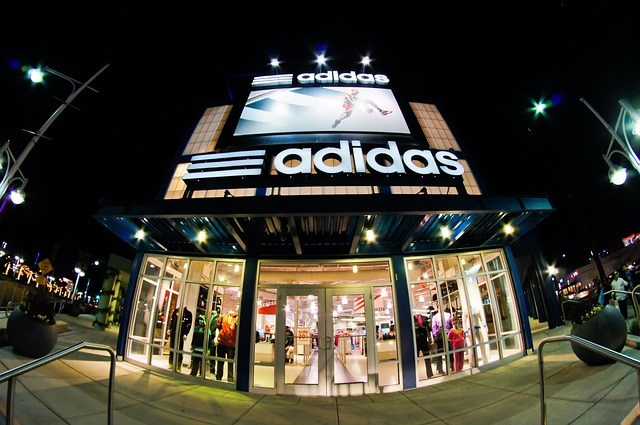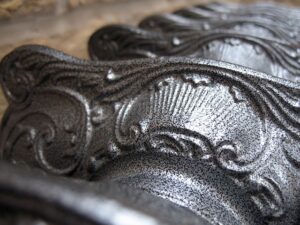Commercial unit heaters designed according to OSHA standards and energy codes are crucial for creating safe, comfortable environments in retail and office spaces. Key features include suspended installation, advanced heating technologies (natural gas or electric), adjustable settings, precise BTU capacity calculation, and integration with HVAC systems. These heaters offer significant energy savings, prioritize safety, and reduce carbon footprints, making them a smart choice for businesses aiming to enhance customer experience while optimizing operational costs.
In today’s digital era, maintaining comfortable and safe working environments is paramount for businesses. To meet these standards, commercial spaces must adhere to OSHA regulations and energy codes for heating systems. This article explores crucial aspects of commercial unit heaters, ensuring compliance with these vital standards. We’ll delve into key features, benefits, and a comprehensive guide to selecting the right heater, empowering folks to make informed decisions for their bustling businesses.
- Understanding OSHA and Energy Code Standards for Commercial Spaces
- Key Features of Commercial Unit Heaters Meeting Compliance Requirements
- Benefits of Using Compliant Heating Solutions in Businesses
- Choosing the Right Commercial Unit Heater: A Comprehensive Guide
Understanding OSHA and Energy Code Standards for Commercial Spaces

In the realm of commercial buildings, ensuring safe and energy-efficient space heating is paramount. OSHA (Occupational Safety and Health Administration) standards dictate safety protocols for workplace environments, while energy codes regulate efficient use of resources. For commercial unit heaters, compliance with these standards involves meticulous design and installation considerations. In retail spaces and offices alike, heaters must be energy efficient, accounting for factors like BTU capacity and suitable suspended installation methods.
When selecting heating solutions, whether natural gas fired or electric heating, it’s crucial to align them with HVAC systems designed for optimal performance. This ensures not just effective office heating or retail spaces heating but also adherence to energy code standards. Understanding these requirements is essential for business owners and facility managers looking to maintain safe, comfortable environments without compromising on operational costs.
Key Features of Commercial Unit Heaters Meeting Compliance Requirements

Commercial unit heaters designed to meet OSHA and energy code standards are a crucial component in ensuring safe and comfortable environments for various commercial spaces, including offices, retail stores, and other business establishments. These heaters come with several key features that cater to both safety regulations and energy efficiency requirements. One of the primary aspects is their suspended installation method, which not only ensures even heat distribution but also prevents tripping hazards, a critical factor in high-traffic commercial buildings.
Moreover, modern commercial unit heaters often incorporate advanced heating technologies like natural gas fired or electric heating systems, offering a balance between performance and energy conservation. They are equipped to handle diverse heating needs, with adjustable settings to manage space heating effectively. The BTU capacity of these units is carefully calculated to meet the specific requirements of different commercial spaces, ensuring optimal comfort without excessive energy consumption. Additionally, many models are designed to seamlessly integrate with existing HVAC systems, promoting overall system efficiency and contributing to cost savings in the long run, making them a smart choice for retail spaces aiming to enhance customer experience while maintaining a focus on sustainability.
Benefits of Using Compliant Heating Solutions in Businesses

Using commercial unit heaters that comply with OSHA and energy code standards offers a multitude of benefits for businesses. Firstly, they ensure a safe and healthy work environment by adhering to stringent safety regulations, reducing risks associated with improper heating systems. Secondly, these compliant heaters contribute to significant energy savings in commercial buildings, retail spaces, and offices through advanced features like precise temperature control and efficient heat distribution.
In terms of space heating, both natural gas fired and electric heating solutions are available, catering to diverse needs. The BTU capacity of commercial unit heaters plays a crucial role in determining their effectiveness, with higher capacities suitable for larger areas. Moreover, energy-efficient models not only lower operational costs but also promote sustainability by minimising the carbon footprint of HVAC systems, making them an increasingly popular choice among forward-thinking businesses.
Choosing the Right Commercial Unit Heater: A Comprehensive Guide

Choosing the right commercial unit heater is a crucial step in ensuring optimal space heating for various business settings, from bustling retail spaces to spacious office buildings. When navigating the market, several factors come into play. Firstly, consider the size of the area you need to heat—the BTU capacity of the heater should align with your space’s square footage for efficient heating. This is where energy-efficient models stand out, offering cost savings without compromising performance.
Secondly, decide on the heating source: natural gas fired heaters are popular due to their high output and cost-effectiveness, while electric heating units provide a cleaner, more sustainable option. For suspended installation in commercial buildings, ensure the chosen heater complies with local HVAC systems and OSHA safety standards. These guidelines guarantee that the unit operates at peak efficiency while maintaining a safe working environment, making it an essential consideration when selecting a commercial unit heater.
Commercial unit heaters that meet OSHA and energy code standards are essential for creating safe, comfortable, and efficient working environments. By understanding these regulations and selecting heaters with key features like advanced safety mechanisms, energy efficiency ratings, and smart controls, businesses can ensure compliance while reducing operational costs. Investing in the right commercial unit heater not only enhances employee satisfaction but also contributes to a company’s bottom line, making it a wise decision for any forward-thinking business.






